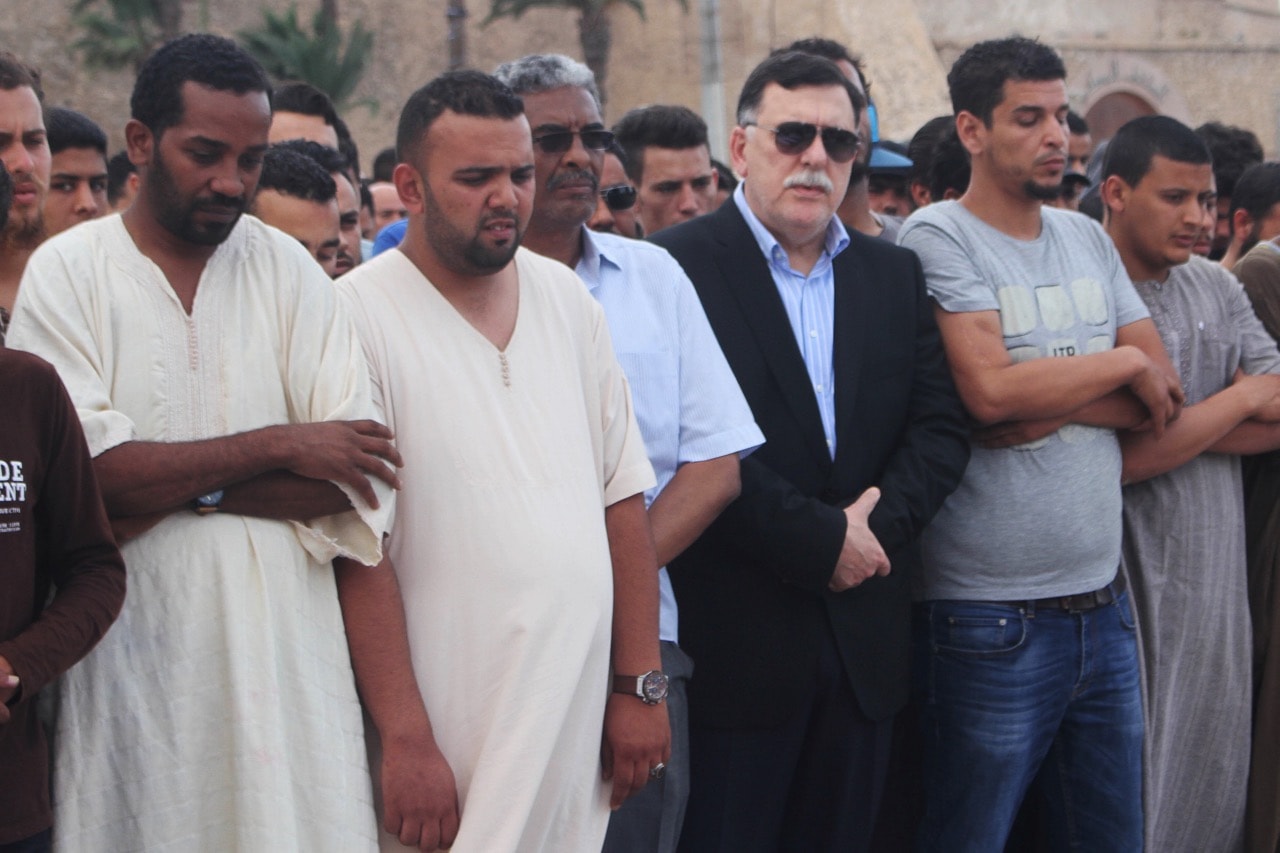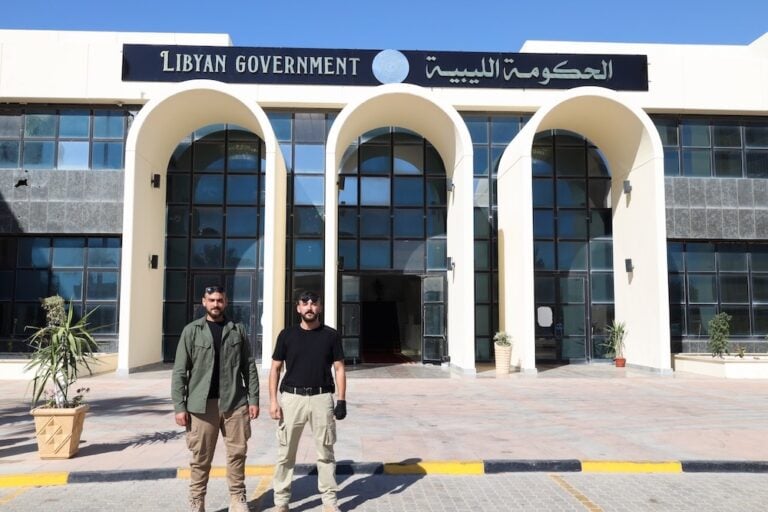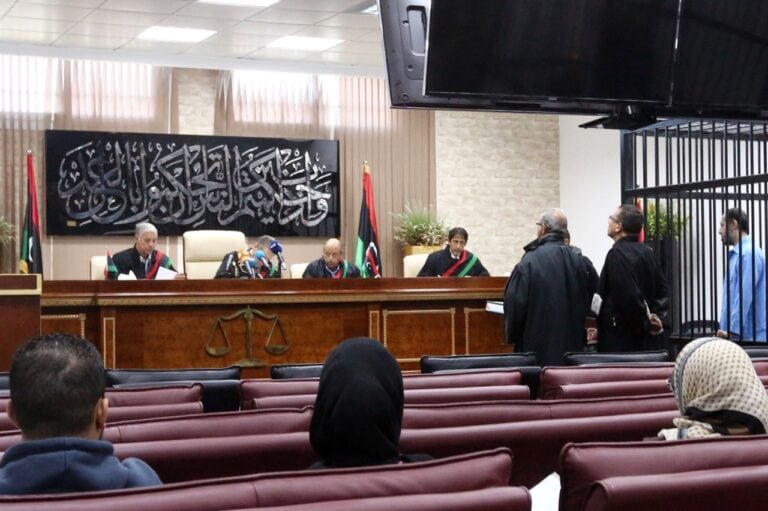Militias and other armed groups with a 'with-us-or-against-us' mindset have gone after activists, bloggers, and media workers, driving many to flee the country and chilling speech for everyone else, said HRw. "The Government of National Accord should hold armed groups, especially those aligned with it, accountable.
This statement was originally published on hrw.org on 27 July 2017.
Human rights defenders, activists, and social media bloggers have been physically attacked, detained, threatened, harassed, and disappeared by armed groups, some of whom are affiliated with the state authorities, in Tripoli and elsewhere in western Libya, Human Rights Watch said today. Despite the killing of an activist and other abuses since 2014, authorities seem unable to rein in the attackers, enabling them to operate with impunity.
Human Rights Watch interviewed 18 human rights defenders, political and civil rights activists, bloggers, and media workers in Tripoli and Zawiyah, in April 2017. Eleven said that since the collapse of central authority and emergence of multiple governments in 2014, militias headed by warlords, and members of armed groups in western Libya, some affiliated with the United Nations-backed Government of National Accord (GNA), had threatened them. Three said they had been physically attacked or ill-treated, and nine said that they feared for their lives after armed groups threatened them. They said many prominent activists had fled the country for neighboring Tunisia and elsewhere.
“Militias and other armed groups with a ‘with-us-or-against-us’ mindset have gone after activists, bloggers, and media workers, driving many to flee the country and chilling speech for everyone else,” said Sarah Leah Whitson, Middle East and North Africa director at Human Rights Watch. “The Government of National Accord should hold armed groups, especially those aligned with it, accountable if they threaten, harass, or assault activists.”
Armed groups affiliated to varying degrees with one of the three competing governments have proliferated. In western Libya, armed groups operate checkpoints, police neighborhoods, and run prisons, but are also involved in criminal activities including smuggling, extortion, and thuggery.
Central authority in Libya has collapsed amid armed conflict and insecurity in western Libya since July 2014. Key institutions, most notably law enforcement and the judiciary, are dysfunctional or have collapsed in parts of the country, including in western Libya, creating an accountability-free zone for armed groups, Human Rights Watch said.
Two activists said that working with international partners was risky because militias, and sometimes colleagues, accused them of being spies. All of the activists interviewed said that they censored themselves out of fear of the armed groups, and did not report incidents to the police because they either did not trust them or had no faith that they would respond.
Most activists interviewed in Tripoli said the armed groups in western Libya became more aggressive toward activists and media workers after July 2014, when a Misrata-led militia alliance, Fajr Libya (Libya Dawn), wrested control of the capital after armed confrontations that lasted several months.
Three activists on women’s rights issues who met with Human Rights Watch in Zawiyah, a town 50 kilometers west of Tripoli, the capital, said that since 2014, women activists have become targets. One activist, who asked not to be named for fear of repercussions, said that armed groups had made clear that raising women’s rights issues of any kind crossed a red line and had threatened women’s rights activists even for raising concerns about other local issues. She said militias had summoned her many times to question her about her activities.
She said that in August 2016, a Zawiyah-based militia, the Al-Silaa unit, which is among the groups that provide security for oil terminals and oil fields, threatened her and another female activist who wanted a refinery road shut by a militia to be reopened so people could get around more easily.
“A member of the Silaa Force came to see me after I had returned home from work and threatened to shoot me if I campaigned again on this issue,” she said. “Once, a car followed me and another activist also involved in this issue, a man leaned out and fired his gun in the air to frighten us. He told my friend next time there will be a bullet for you and another for her. We also got threats via our phones and Facebook accounts warning us to remove posts critical of militias.”
One environmentalist who did not wish to be named for fear of attack said that before the 2014 conflict in Tripoli, he and others were still able to address environmental issues. He said that after the conflict began, militias aligned with the Fajr Libya alliance, which controlled Tripoli at the time, threatened him with arrest and physical attack after he reported on armed groups taking over forest areas and the impact on the forests. He said that he now censors himself as a result.
Activists at the Libyan Center for Freedom of the Press (LCFP), a group with 150 registered members that monitors and reports on human rights violations against journalists and restrictions on freedom of media, and makes submissions to the UN, also expressed concern. They told Human Rights Watch that media workers did not trust the police or the judiciary and practiced self-censorship. Mohamed Najem, the group’s director, said that media workers and activists rarely filed police complaints about mistreatment by armed groups for fear of reprisals. In some cases, the police would refuse to accept a complaint or open a file.
According to the center’s 2016 annual report, armed groups have attacked 107 media workers around the country, including physical attacks and the killing of two journalists. According to the center, nine journalists have been killed in the line of duty in Libya since 2014.
Najem also underscored the danger from incitement against a particular media worker or activist in social media or on TV. “The likelihood of physical violence against media workers increases if there is such incitement,” he said.
Abdelmoez Banoon, a prominent political and civil rights activist and blogger in the post-2011 uprising period, has been missing since his abduction on July 25, 2014, in front of his home in Tripoli, by unidentified armed men linked to the Fajr Libya alliance. Banoon frequently participated in demonstrations against the presence of militias in Tripoli and publicly campaigned against the extension of the mandate of then-parliament, the General National Congress.
On February 24, 2015, the body of Intissar al-Hassaeri, a political activist and founding member of the sociocultural movement Tanweer (Enlightening) was found killed in the trunk of a car in Tripoli along with the body of a female relative. No investigation of the deaths was ever concluded, and there is no clarity about whether al-Hassaeri’s killing was linked to her work as an activist.
An armed group linked to the GNA’s Interior Ministry abducted Jabir Zain, a Tripoli-based human and civil rights activist and blogger, from a café in the capital, and subsequently forcibly disappeared him, on September 25, 2016. His whereabouts are unknown.
Both the Libyan penal code, which dates to the period of Muammar Gaddafi’s rule, and decrees enacted in the transitional period following his ouster in 2011, restrict free expression. However, the interim constitution passed in 2011 guarantees “freedom of opinion, individual and collective expression, research, communication, press, media, printing and editing, movement, assembly, demonstration and peaceful sit-in in accordance with the statute.”
“By silencing critics through threats and violence, warlords and thuggish militias have found a convenient way to expand their power base at the expense of political stability,” Whitson said.
Libya’s political landscape
The Tripoli-based Government of National Accord (GNA), headed by Prime Minister Fayez Serraj, is one of three rival authorities in Libya claiming legitimacy. The GNA, which remains the only authority the international community formally recognizes, competes for control of territory and legitimacy in western Libya with the Government of National Salvation, which has only a minimal presence on the ground.
Libya’s parliament, the House of Representatives, is based in the eastern city of Tobruk and supports a third authority, the Interim Government, headed by Abdullah al-Thinni and based in the eastern town of al-Bayda. The Interim Government is allied with the Libyan National Army forces under the command of Khalifa Hiftar. The parliament has failed to confirm a cabinet for the GNA as called for in the Libya Political Agreement (LPA) stipulations, signed by some Libyan stakeholders in December 2015, in Skheirat, Morocco.
The Fajr Libya coalition, led by militias from the coastal city of Misrata, competed in 2014 with a coalition of militias from Tripoli and the mountain town of Zintan for control of Tripoli. Fajr Libya took the upper hand and controlled parts of Tripoli until March 2017, when armed groups aligned with the UN-backed Government of National Accord began actively contesting their presence. The GNA-backed armed groups took full control of the capital by June.
Militias reporting to warlords continue to clash in Tripoli in July 2017, and there is a risk of attacks by rival armed groups amassing on the city’s eastern outskirts. These rival forces, mostly from Misrata but also from elsewhere in western Libya, are aligned with Khalifa Ghwell, prime minister of the self-declared National Salvation government.



